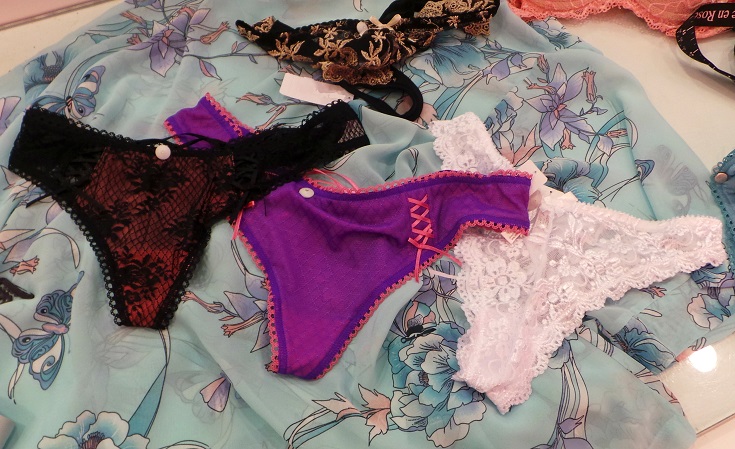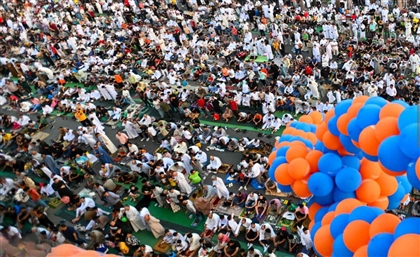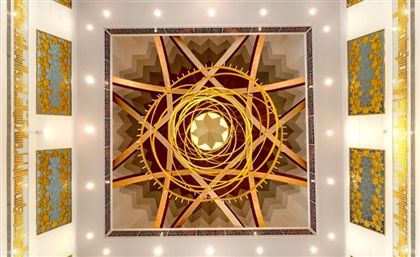Lingerie in the Streets of Cairo: Gender Equality on A String?
While taking a stroll in Cairo, a hijabi woman's interaction with a lingerie street vendor sends Ahmed Tharwat analysing and epiphanising.

Cairo’s Tahrir Square is the global symbol of the January 25th Revolution, where millions of Egyptians, including women who went to demand the toppling of the regime. Lately, Tahrir Square has witnessed the courting of the Egyptian population by General Al Sisi and his propaganda machine as well as a ‘Million Woman March’ demanding the banning of hijab.
The history of progressive women and their struggle for independence and social freedom is an old one, starting with Egyptian feminist and political activist Huda El Shaarawi, founder of the Egyptian Feminist Union in 1923. Two events stand out in the history of women’s struggle in Egypt; in the Egyptian Revolution of 1919, women demonstrated side by side with men and used their hijab as a symbol of resistance to the British occupation, and again in the 1940s and early 50s, when small groups of radical leftist women embraced the causes of inequality and nationalism with a strong anti-imperialist bent. A pamphlet published by one such group reads: “Struggle to realize democratic freedom for women in Egypt – that is the freedom which cannot be attained in the shadow of imperialism or enslavement and exploitation.”
Egyptian women, who are, again, trying to gain the freedom to remove their hijab, need to ‘burn their bras’ first, as their western counterparts did in the sexual revolution of the 60s. They may not be burning their bras per se, but you can see them buying bras, lingerie, and undergarments on the street.
Nowadays, it is not uncommon to see bras and lingerie displayed on every street corner and in shop windows, even on sidewalks in the slums of Cairo. The sidewalk in Egypt has always had a striving and vibrant life and culture of its own, which millions of Egyptians use as an extended landscape of their own homes. On sidewalks, Egyptians sit, converse, watch TV, eat, drink, and buy and sell everything and anything, even women’s lingerie.
Watching women dressed in their traditional clothes and hijab buying lingerie in public is a confusing cultural experience for the untrained eye. Once, I stopped by a sidewalk lingerie stand in a suburb east of Cairo. The carts were covered with colourful and fashionable Chinese-made bras and scanty underwear. Ironically, this lingerie stand, like, virtually, all of them, was run by a man; women don’t sell underwear in public, but they buy the products, almost exclusively. Buying lingerie in public is a new form of self-expression.
Naturally, flirting is a big part of the lingerie-buying bargaining game, where sexual euphemisms are not a social taboo. The lingerie carts were everywhere, surrounded by a few women in their long garments and hijabs, sorting and holding up lingerie in their hands, confidently checking sizes and style, oblivious to the piercing eyes since there is no privacy, no dressing room on the sidewalk. In that particular case, the salesman was very cool, respectable, and helpful, conversing with a slightly full-figured woman as he casually handed her a thong, as if he was handing her a Kleenex. “That is too small,” she shrugged. “Not at all, it is your size,” he assured her, as if he knew something! She smiled, steered his hands away, and continued her quest for the right-fitting undergarment.
I approached the lingerie cart and curiously asked the charming salesman about his secret. “How do you know the sizes of your customers?” I queried. “I look at her waist and shoulder,” he replied in all sincerity as he demonstrated his technique on his own body.
Contemporary lingerie can be whatever the modern woman wants it to be, and women have more choices now than at any time in history. A Western woman may still buy her undergarments in secret, from a Victoria’s Secret store in a mall, but at the sidewalk lingerie markets in Egypt, confident Egyptian woman buy theirs out in the open, which displays empowerment and the freedom to express their sexuality in such a conservative culture – there was lingerie for all situations and intentions, including lingerie that was strapless and backless, thongs, teddies, as well as a plethora of everyday bras and panties.
Egypt, with all its political turmoil and anxiety, offers women an escape into a lingerie shopping experience where they can feel good about their bodies, something which has been ignored for a long time. Now, in the era of the new Prince Charming Al Sisi, the Alpha male, the conqueror of the Muslim Brotherhood invaders, women may not be able to protest in the street, but at least they can freely buy their own lingerie.
- Previous Article 16 Egyptian Moments That Defined 2016
- Next Article SceneNoise Select 015: Moste B2B Shafei
Trending This Week
-
Mar 29, 2025























